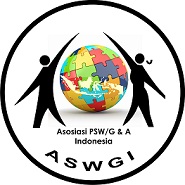IMPLEMENTATION CLEAN AND HEALTHY LIVING BEHAVIOR AT ELEMENTARY SCHOOL LEVEL IN MEDAN CITY
Abstract
Clean and Healthy Living Behavior Program in schools push students, teachers, and society environment school For do pattern life Healthy For create healthy school. This program reach objective For give experience Study or create condition for individual, family, group and society with open track communication, giving information, and doing improving education knowledge , attitudes , and behavior. Many diseases are caused Because behavior life clean and healthy still not enough implemented in schools like Diarrhea , worms , filariasis, dengue fever and vomiting. Research result show that application Clean and Healthy Living Behavior at the elementary school level in the Medan City Health Center working area in October-December 2023 experienced fluctuations (fluctuating) or the value was not constant. Indicators that influence Clean and Healthy Living Behavior in schools Already appropriately improved Again For child conscious school will importance doing Clean and Healthy Living Behavior at school. Based on research use Time Series analysis using the Sequence Charts method can be concluded that elementary school level Clean and Healthy Living Behavior activities in the Medan City Health Center work area in October-December 2023 experienced fluctuations (up and down) or their values were not constant. Indicators that influence clean and healthy living behavior in schools Already appropriately improved Again For child conscious school will importance doing clean and healthy living behavior at school.
Keywords
Full Text:
PDF (Indonesian)References
Abma, T., Lips, S., & Schrijver, J. (2020). Erratum: Sowing seeds to harvest healthier adults: The working principles and impact of participatory health research with children in a primary school context(Int. j. environ. res. public health 2020, 17, 451). International Journal of Environmental Research and Public Health, 17(9). https://doi.org/10.3390/ijerph17093252
Alsoufi, A., Alsuyihili, A., Msherghi, A., Elhadi, A., Atiyah, H., Ashini, A., Ashwieb, A., Ghula, M., Ben Hasan, H., Abudabuos, S., Alameen, H., Abokhdhir, T., Anaiba, M., Nagib, T., Shuwayyah, A., Benothman, R., Arrefae, G., Alkhwayildi, A., Alhadi, A., … Elhadi, M. (2020). Impact of the COVID-19 pandemic on medical education: Medical students' knowledge, attitudes, and practices regarding electronic learning. PLoS ONE, 15(11 November), 1-20. https://doi.org/10.1371/journal.pone.0242905
Biezen, R., Grando, D., Mazza, D., & Brijnath, B. (2019). Visibility and transmission: Complexities around promoting hand hygiene in young children - A qualitative study. BMC Public Health, 19(1), 1-8. https://doi.org/10.1186/s12889-019-6729-x
Buchanan, A., & Rotkirch, A. (2018). Twenty-first century grandparents: global perspectives on changing roles and consequences. Contemporary Social Science, 13(2), 131-144. https://doi.org/10.1080/21582041.2018.1467034
Domitrovich, C. E., Durlak, J. A., Staley, K. C., & Weissberg, R. P. (2017). Social-Emotional competence: An essential factor for promoting positive adjustment and reducing risk in school children. Child Development, 88(2), 408-416. https://doi.org/10.1111/cdev.12739
Kemenkes RI. (2018). Laporan Nasional Riskesdas 2018.
Maillard, J. Y., Bloomfield, S. F., Courvalin, P., Essack, S. Y., Gandra, S., Gerba, C. P., Rubino, J. R., & Scott, E. A. (2020). Reducing antibiotic prescribing and addressing the global problem of antibiotic resistance by targeted hygiene in the home and everyday life settings: A position paper. American Journal of Infection Control, 48(9), 1090-1099. https://doi.org/10.1016/j.ajic.2020.04.011
Messakh, S. T., Purnawati, S. S., & Panuntun, B. (2019). Gambaran Perilaku Hidup Bersih Dan Sehat Siswa Sekolah Dasar Negeri Di Kecamatan Bancak. Jurnal Ilmu Keperawatan Dan Kebidanan, 10(1), 136. https://doi.org/10.26751/jikk.v10i1.477
Rachmadewi, A., Soekarjo, D., Maehara, M., Alwi, B., Mulati, E., & Rah, J. H. (2021). School Canteens in Selected Areas in Indonesia: A Situation Analysis. Food and Nutrition Bulletin, 42(2), 225-246. https://doi.org/10.1177/03795721211008021
Ravsanjanie, M. M., Pawitra, A. S., Diyanah, K. C., Zakaria, Z. A., & Marmaya, N. H. B. T. E. (2021). Utilization of Clean Water, Personal Hygiene of Toddler Caregivers, and Smoking Behavior of Family Members as Risk Factors for Cases of Stunting Toddlers. Jurnal Kesehatan Lingkungan, 13(1), 48-56. https://doi.org/10.20473/jkl.v13i1.2021.48-56
Rizky Oktaviani, F. A. (2023). Gambaran Status Gizi Dan Prestasi Pada Anak Usia Sekolah. Jurnal Ilmiah Kesehatan Keris Husada, 7(2), 79-87.
Spengler, M., Damian, R. I., & Roberts, B. W. (2018). Journal of Personality and Social How You Behave in School Predicts Life Success Above and Beyond. 114(4), 620-636.
WHO. (2018). Health Equity Assessment Toolkit (HEAT) Software for exploring and comparing health inequalities in countries.
WHO. (2019). Safe Water, Better Health. In World Health Organization. https://apps.who.int/iris/bitstream/handle/10665/329905/9789241516891-eng.pdf
DOI: http://dx.doi.org/10.30829/jgsims.v5i2.19357
Refbacks
- There are currently no refbacks.
Copyright (c) 2024 Journal of Gender and Social Inclusion in Muslim Societies

This work is licensed under a Creative Commons Attribution-ShareAlike 4.0 International License.
Pusat Studi Gender dan Anak Universitas Islam Negeri Sumatera Utara
Jl. Williem Iskandar, Pasar V Medan, Medan Estate 20371
» Tel / fax : (061) 6615 683 /




